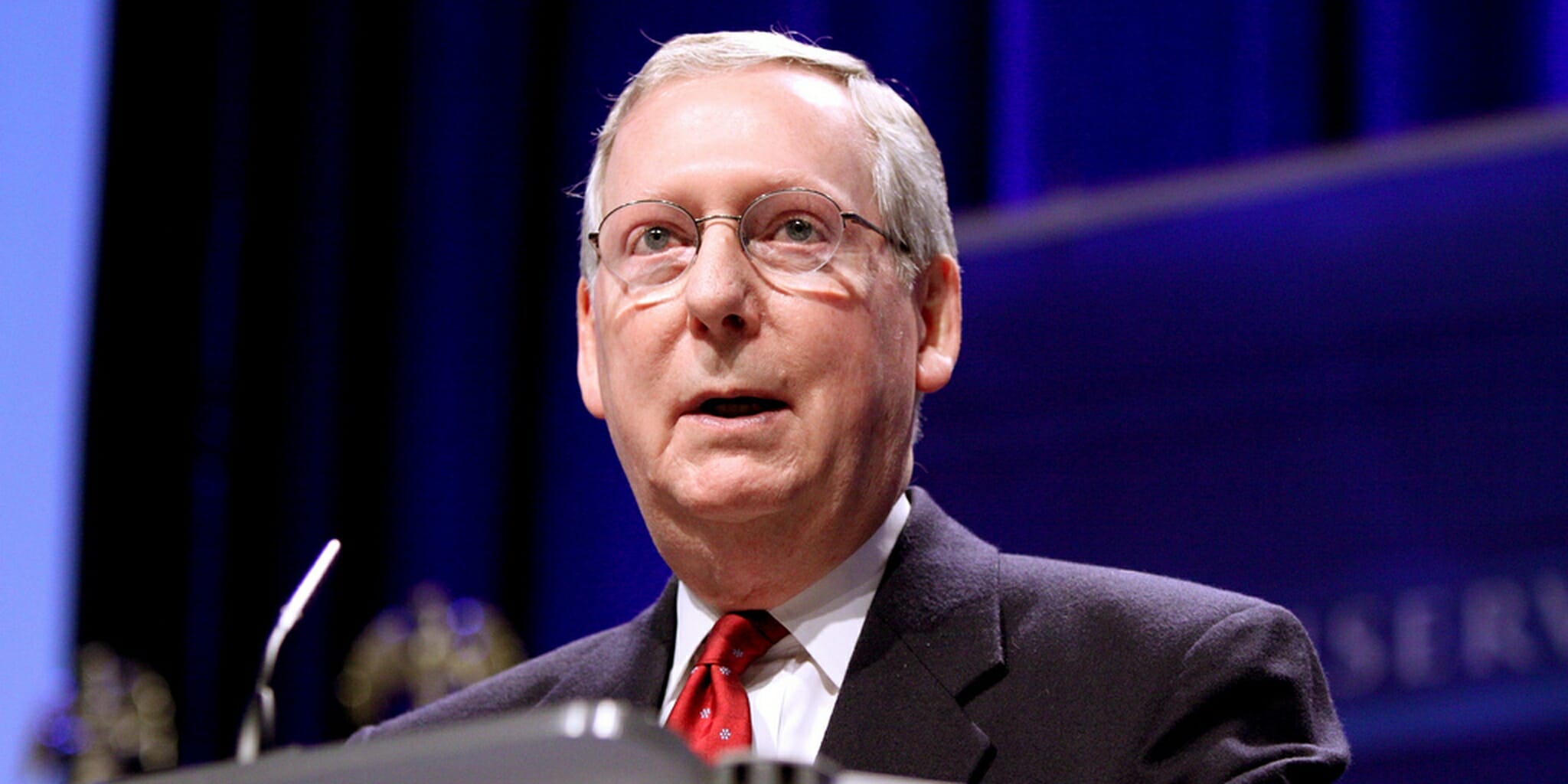As the ongoing controversy over President Donald Trump and Russia continues to dominate headlines, Senate Republicans secretly crafted a bill to repeal the Affordable Care Act (ACA).
Although the House narrowly passed its own healthcare legislation, the American Healthcare Act (AHCA), last month, the Senate immediately decided to draft its own bill rather than take up the AHCA. Considering the low popularity of the AHCA, that may be a good move. But the decision to keep the Senate’s version shrouded in mystery has added another controversial dynamic to the healthcare overhaul.
Now that the Senate bill—dubbed the “Better Care Reconciliation Act”—has finally been released to the public, the controversy is likely to only intensify, as the bill mirrors much of the AHCA while also tweaking key provisions that will draw condemnation from across the political spectrum. Here are the key facts you need to know about the bill that could change the lives of millions of Americans.

1) Heavy cuts to Medicaid funding
The Senate’s version of the bill, like the House version, cuts Medicaid, which millions of lower income Americans rely on. From 2020 to 2024, the bill will phase out the expansion of Medicaid that was a part of the Affordable Care Act. Approximately 11 million Americans were recipients of the increased funding to Medicaid, and a total of 62 million Americans are enrolled in Medicaid, making it the largest insurance program in the U.S.
https://twitter.com/sangerkatz/status/877539457397911552
The House bill would repeal the Medicaid expansion by 2020, but the Senate version includes deeper cuts to the healthcare program.
Starting in 2025, the Senate version allows the U.S. government to calculate federal Medicaid expenditures in a different way, which would enable it to reduce funding to the program by hundreds of billions of dollars over time, according to the Urban Institute.
According to the New York Times, Medicaid covers 20 percent of all Americans, 64 percent of all nursing home residents, 40 percent of all poor adults, and 76 percent of all poor children.
2) End to ACA ‘individual mandate’ tax penalties
The bill ends the controversial provision of the ACA that requires Americans to pay a penalty if they don’t have insurance. Known as the “individual mandate,” the penalties imposed under Obamacare were there to ensure more people purchased coverage, which helped spread the cost burden. The Senate bill contains no such requirements for coverage.
3) Protections for Americans with pre-existing conditions
Like the ACA, the Senate bill does not allow insurance providers to drop or charge more for people with pre-existing conditions. However, the bill does give states the rights to waive some requirements that could weaken these protections. This is still a strengthening of the provision over the AHCA, which lets states waive the requirement that insurers cover Americans with pre-existing conditions.
4) Reduction of insurance subsidies pool
The Senate bill shrinks the pool of Americans eligible for subsidies to cover the cost of health insurance. Starting in 2020, Americans who make 350 percent above the federal poverty level (which changes over time) would be eligible to receive subsidies. Under Obamacare, the limit is 400 percent above the poverty line.
5) Temporarily cuts to Planned Parenthood funding
Under the Senate bill, any “qualified health plan” (meaning those eligible for tax credits) cannot include coverage for abortions unless the pregnancy is the result of rape or incest. The bill also eliminates federal funding for Planned Parenthood for one year once the bill is enacted.
BREAKING: Senate releases secret #Trumpcare bill that "defunds" Planned Parenthood & takes away coverage from millions. #IStandWithPP pic.twitter.com/drZlDR0k5s
— Planned Parenthood Action (@PPact) June 22, 2017
6) Funds to combat opioid addiction
The Senate bill provides states with $2 billion in 2018 to combat the national opioid epidemic. The House bill would have provided $45 billion over 10 years.
7) Repeal of taxes on the wealthy
The bill would slash taxes on those making more than $200,000 and married couples making more than $250,000. The billions of dollars in taxes in the ACA were used to help more people have access to healthcare.
8) It could pass without any Democratic support
A crucial part of the political gamble the Republicans are making is for their healthcare bill to be budget neutral, which means they can pass it through a process called budget reconciliation. Doing it that way only requires a simple majority vote, meaning at least 50 of the 52 Republican senators would have to vote for it. It’s unlikely to receive support from any Democrats.
9) A vote could come within a week
Senate Majority Leader Mitch McConnell (R-Ky.) is expected to bring the bill up for a vote by Thursday, June 29.
10) It doesn’t have the votes to pass in its current form
Soon after the bill was unveiled on Thursday, four conservative senators—Kentucky’s Rand Paul, Ted Cruz of Texas, Utah’s Mike Lee, and Ron Johnson of Wisconsin—said in a statement that they will not vote for the bill as it stands. That would leave the bill with two votes short of the 50 needed for it to pass.
11) They might let it fail—on purpose
Making the Senate’s version of an Obamacare replacement “more generous,” as Trump put it, would mean excluding some provisions that conservative lawmakers are pushing for, such as eliminating some taxes imposed under Obamacare or even allowing states to exclude protections for people with pre-existing conditions. Doing so means risking a vote on a bill that may not pass, even with the lower simple-majority threshold.
The reason? According to some lawmakers who spoke to CNN, holding a vote on a doomed Obamacare replacement bill lets moderate Republicans at least say they tried to fix Obamacare while more conservative can vote against it on the ground it’s simply another version of “Obamacare-lite.”
12) We should know the full price of the bill as early as Friday
According to the Washington Post, the Congressional Budget Office (CBO), a nonpartisan group, could score the Senate version of the bill as early as Friday. The CBO assessed the House version of the bill and found that 23 million fewer Americans would have health insurance under the new law over the next decade.
The House passed its version of the bill without getting it first scored by the CBO.
Editor’s note: This article has been updated to reflect new details about the Senate healthcare bill.

